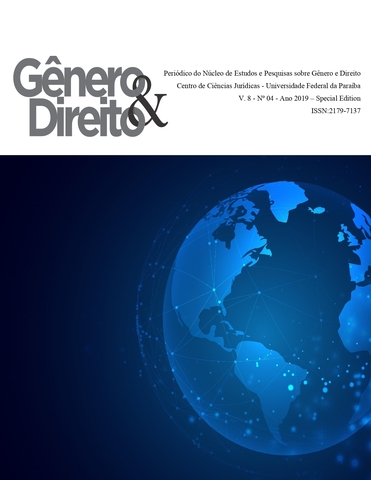IMPLICATURES IN FICTION TEXTS
DOI:
https://doi.org/10.22478/ufpb.2179-7137.2019v8n4.48397Palavras-chave:
language, linguistics, research, implicature, utterance, implicitness, implicit meaning, contextual implicatures, common communicative implicatures.Resumo
The article considers implicatures of utterances. An implicature is information complex which is literally (verbally) unexpressed and which can be elicited as a result of extracting the meaning using background knowledge of recipient, context and situation. Formation and understanding the meaning of an utterance is the process of extracting implied meaning which is formed by interaction of linguistic units with constituents of cognitive environment. An utterance therefore can be considered as a speech stimulus involving the knowledge from cognitive environment to form the meaning of the utterance. Extracting the meaning is (that is, eliciting an implicature) is important for communicion. The purpose of the research was to study various aspects of implicatures: the way of extracting the meaning, describing different types and obtaining statistical data of different types implicatures usage. In particular, our research demonstrates statistical prevalence of contextual implicatures. The results of the paper can be of some interest for experts in linguopragmatics and psycholinguisics.Downloads
Referências
D.Sperber, D.Wilson.: Relevance. Blackwell, Oxford, 2003.
A,V.Kashichkin. Implitzitnost v kontexte perevoda.: dis. ... kand. filol. nauk: 10.02.20: Москва, P.9, 2003.
S.G.Levinson: Pragmatics. Cambridge University Press, Cambridge, 1983, P.102.
N.Gimatdinova. Ikebezge de avir. Kazan, 2002. . P. 317.
H.P.Grice. Logic and conversation. In: «Syntax and semantics», v. 3, ed. by P. Cole and J. L. Morgan, N.Y., Academic Press, 1975.
F.Yarullin. Yarali yazmishlar. Kazan, Ruhiat, 2000. P.182.
H.P.Grice. Logic and conversation. In: «Syntax and semantics», v. 3, ed. by P. Cole and J. L. Morgan, N.Y., Academic Press. P.43, 1975.
V.N.Comissarov. Sovremennoye perevodovedeniye. M., ETS.2002.
M.Mahdiev. Sailanma eserler. Kazan, Tatarstan kitap nashriati, 1996. vol.2. Frontoviklar. P.96.
A.M.Guilajev. Jomga ken, kich belen. Kazan, 19982. P.9.
V.N.Comissarov. Sopostavitelno-perevodcheskiy analiz implicitnogo smisla viskazivaniya// Linguisticheskie i metodicheskiye problemi prepodavaniya russkogo yazika kak nerodnogo: sb. Nauchn.trudov/AN SSSR, In-t yazikoznaniya; redactor A.M. Shakhnazarovich. M., 1991. P. 89-91.
N.Gimatdinova. Parly yalgiz. Kazan, 2003. P.103.
A.M.Guilajev. Jomga ken, kich belen. Kazan, 19982. P.26.
M.Mahdiev. Sailanma eserler. Kazan, Tatarstan kitap nashriati, 1996. vol.2. Frontoviklar. P. 187.
T.N. Galiullin. Taube. Каzаn: Татаrstan kitap nashriyate. 1997. P. 137

